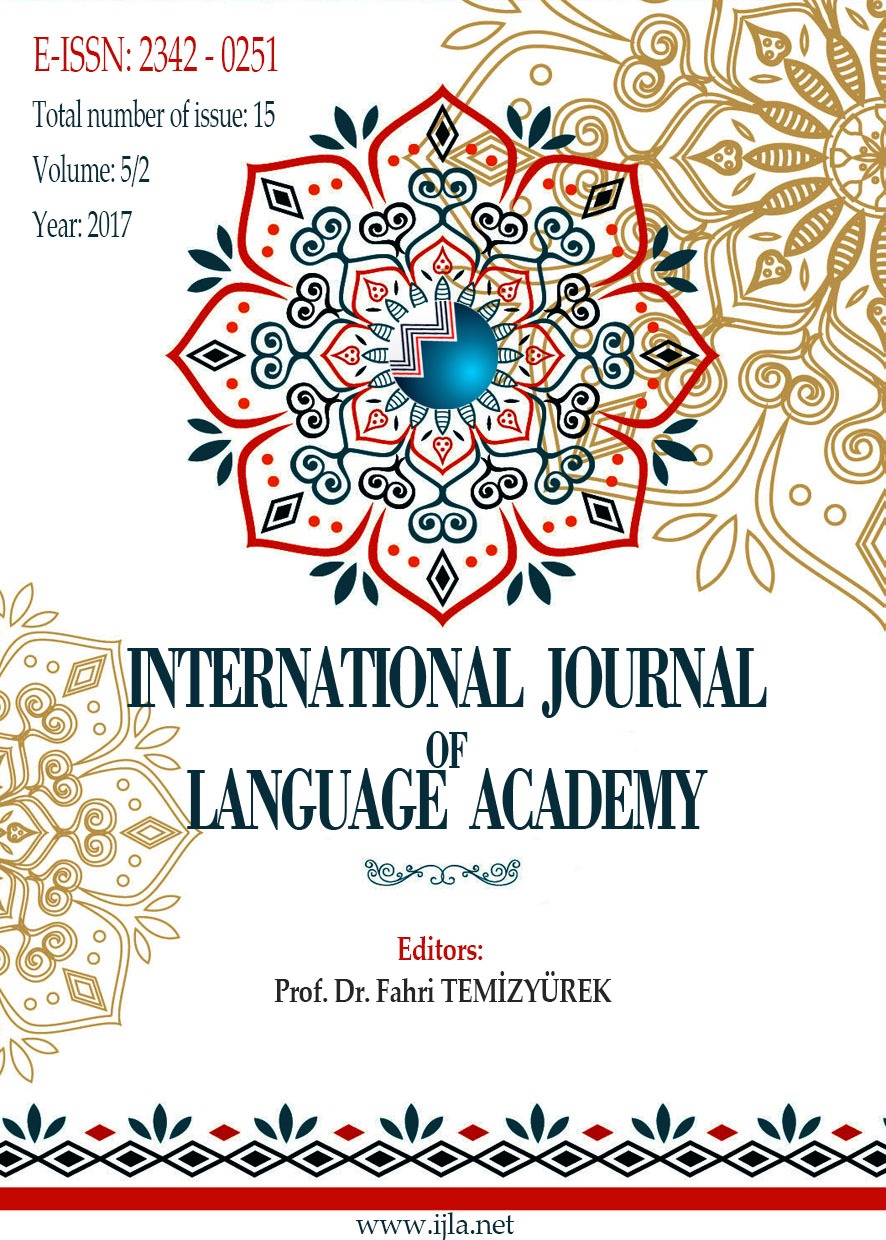Author :
Abstract
Kalıp söz edinci, sosyokültürel edinç, söylem edinci, dilsel edinç, etkileşimsel edinç ve stratejik edinç iletişimsel edinci oluşturan bileşenlerdir. Dil öğrenimi sırasında iletişimsel becerilerin gelişebilmesi için bu bileşenlerin tamamına yönelik girdilerin olması ve öğrenci tarafından anlamlandırılması beklenmektedir. Bu edinçlerden biri olan kalıp söz edinci kendi içinde dilde kalıp olan kullanılan ifadeleri, deyimleri, sözcüksel bileşimleri ve eşdizimlileri içermektedir. Bunlardan dildeki kalıp ifadeler sözlü iletişimde oldukça önemli oranda yer aldıkları için öğretimlerine ayrıca yer verilmelidir. Kalıp sözler hem konuşucu tarafından üretilişleri sırasında hem de karşılıklı etkileşim sırasında çeşitli işlevleri yerine getirirler. Konuşucuya zaman kazandırır, içeriği düzenlerken daha kısa bir işlem yolu yaratır, söylemi düzenlemesine yardımcı olur, dinleyicilerin fiziksel duygusal bilişsel gerekliliklerine cevap vermesini sağlar. Dinleyicileri için konuşucuya yönelik pek çok bilgiyi içerdiği için anlamlıdır. İletişimde bu kadar yoğun işleve sahip kalıp sözlerin yabancı dil olarak Türkçe öğretiminde bağlam, etki ve işlev basamaklarının öğrenci açısından net ve anlamlı bir şekilde sunulması öğretimi daha etkili hale getirebilir. Bu amaçla seçilen sözlerin kalıp söz edincini geliştirmesi için diğer edinç bileşenlerine de yer vererek daha çok sözlü iletişim etkinlikleri şeklinde sunulmasının daha yararlı olacağı düşünülmektedir. Bu çalışma bu iletişimsel edinç bileşenlerinden kalıp söz edincinin yabancı dil olarak Türkçede geliştirilebilmesi için öğreticilere kalıp sözlerin yapısı ve işlevi hakkında bilgiler sunmakta ve etkinliklerin düzenlenmesi sırasında kullanılabilecek bağlam ve işlev örnekleri içermektedir.
Keywords
Abstract
Formulaic competence, socio-cultural competence, discourse competence, linguistic competence, interactional competence and strategic competence are the constituent components of communicative competence. In order for communicative skills to develop during language learning, it is expected that there are inputs towards these components, all of which are to be interpreted by students. One of these competence components, formulaic competence consists of the expressions used as formulaic phrases, idioms, lexical frames, and collocations. The formulaic expressions should be specifically included in teaching as they take great importance in the verbal communication. Namely, the formulaic expressions fulfill a variety of functions during their utterance by the speaker and the conversational interaction between the speakers. By the help of these expressions, the speakers save time, create a shorter processing path to arrange the content, organize their discourse and meet the physical, emotional and cognitive necessities for the listeners. They are significant as for their capacity to include very much information of the speakers for the listeners. Having numerous functions in communication, presenting the contextual, functional and impact levels of the formulaic expressions as clearly and meaningfully to the students in teaching Turkish as a foreign language might accomplish teaching more effective. It is thought that it will be more beneficial to present the selected expressions on this purpose as verbal communication activities besides applying other components of competence in order to develop formulaic competence. This study provides information about the structure and function of the formulaic expressions that might be used to develop the instruction of formulaic competence among other constituent components of the communicative competence in teaching Turkish as a foreign language, and includes contextual and functional examples that may be used during the organization of the activities.





